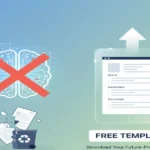Future-proof your career in 2025 with the most in-demand skills. Learn the top Career Skills 2025 you need to succeed, from AI literacy to cybersecurity, data analytics, and soft skills for future career growth.
Why 2025 Is a Career Turning Point
The year 2025 is reshaping the future of work. With rapid advancements in AI, automation, hybrid workplaces, and digital transformation, professionals who stay ahead will have a major advantage.
Simply put: the skills that got you hired five years ago may no longer guarantee success today. To remain competitive, you need to future-proof your career by focusing on in-demand skills that employers are actively seeking.
The good news? Learning has never been easier. Thanks to online courses, certifications, and self-paced resources, you can upskill from home and build expertise in just a few months.
Why Upskilling Matters for Career Growth
- Stay relevant: Technology is evolving faster than ever. Without new skills, you risk falling behind.
- Boost employability: Employers value professionals who adapt and grow.
- Increase earning potential: Specialized skills often command higher salaries.
- Future-proof your career: With automation replacing routine tasks, transferable skills make you indispensable.
- Personal growth: Learning keeps you sharp, creative, and resilient in a changing job market.
A McKinsey report predicts that by 2030, nearly 800 million people worldwide may need to transition into new roles due to automation. That’s why lifelong learning is no longer optional — it’s essential.
The Most In-Demand IT & Career Skills 2025
1. Cybersecurity & Risk Management
Protecting data and digital assets is a top priority for every organization.
- Skills include: penetration testing, encryption, compliance (PCI-DSS, HIPAA), and ethical hacking.
- Careers: Information Security Analyst, Cybersecurity Consultant, Ethical Hacker.
2. Programming & Automation
- Coding isn’t just for developers anymore — IT pros and business analysts benefit from it too.
- Languages to learn: Python, JavaScript, PowerShell, and C++.
- Bonus: Automating workflows with scripts saves time and boosts efficiency.
3. Data Analytics & Interpretation
- Businesses rely on data-driven decision-making.
- Learn tools like Excel, SQL, Tableau, and Google Analytics.
- Being able to extract insights from data sets you apart in almost every industry.
4. AI & Machine Learning Fundamentals
- Understanding how AI models work, plus knowing how to prompt generative AI tools effectively, is a career advantage.
- Applications: Healthcare, marketing, finance, and IT automation.
- Careers: AI Specialist, Data Scientist, AI-Powered Marketing Analyst.
5. Digital Marketing & SEO
- With businesses moving online, demand for SEO, content marketing, and paid ads is booming.
- Learn about influencer marketing, personalization, and AI-driven campaigns.
- Perfect for freelancers, entrepreneurs, and IT professionals who want versatility.
6. Soft Skills: Adaptability & Resilience
- Tech skills get you the job, but soft skills help you grow.
- Adaptability, resilience, and problem-solving are must-haves in unpredictable markets.
7. Communication & Collaboration Tools
- In hybrid and remote work environments, being fluent in tools like Zoom, Notion, Trello, and Slack is a must.
- Strong written and verbal communication skills make teamwork smoother.
8. Project Management (Agile & Scrum)
- IT projects require organization and leadership.
- Certifications: PMP, Scrum Master, or Agile Project Management.
- Career paths: Project Manager, IT Operations Manager, Scrum Lead.
9. Creativity & Problem-Solving
- Employers love candidates who can think outside the box.
- Creativity fuels innovation, and problem-solving ensures you thrive in challenging environments.
10. Persistence & Lifelong Learning
- The best IT professionals are curious and never stop learning.
- Showing persistence in tackling tough projects demonstrates strong work ethic and commitment.
How to Choose Which Skills to Learn
- Match Industry Trends – Look at what’s in demand in your field.
- Go with Your Interests – Skills you enjoy will keep you motivated.
- Think Transferable – Choose abilities useful across multiple industries.
- Check Future Demand – Review reports by McKinsey, Gartner, and WEF.
Final Thoughts
2025 is not about working harder — it’s about working smarter with the right skills. Whether you’re an IT professional, a fresh graduate, or a career changer, focusing on cybersecurity, AI, data analytics, digital marketing, and soft skills will prepare you for success in the new era of work.
Frequently Asked Questions
Q1. What are the most sought-after IT skills for 2025?
Cybersecurity, programming, AI literacy, data analytics, and cloud computing comprise the most sought-after IT talents in 2025. Soft skills, such as communication and adaptability, are equally critical for success.
Q2. Which skills can be used to secure my profession in the future?
Concentrate on transferable skills, including problem-solving, project management, digital marketing, and data analysis. These apply to a variety of industries and will continue to be valuable despite technological advancements.
Q3. What are some strategies that recent graduates can use to prepare for the employment market in the future?
A combination of technical skills (AI, cybersecurity, data analytics) and soft skills (adaptability, communication, collaboration) should be developed by recent graduates. Starting with internships, certifications, and online learning platforms is an excellent approach.
Q4. In 2025, will AI capabilities be indispensable for all occupations?
While not all positions necessitate profound AI expertise, it is imperative to possess fundamental AI literacy, which involves understanding the influence of AI tools and automation on one’s field in nearly all sectors.
Q5. What are the most effective online resources for acquiring new skills?
Coursera, edX, Udemy, LinkedIn Learning, and Google Career Certificates are among the most widely used platforms. These provide training that is globally recognized, affordable, and flexible.
Q6. Is the importance of interpersonal skills still relevant in 2025?
Without a doubt. Although technical proficiency is essential, professionals are able to adapt, collaborate, and develop within organizations by utilizing soft skills such as communication, resilience, and problem-solving.
Q7. Which career sectors are projected to experience the greatest growth by 2030?
Significant growth is anticipated in sectors such as AI, cybersecurity, healthcare technology, green energy, and data science, as per the World Economic Forum and McKinsey.






